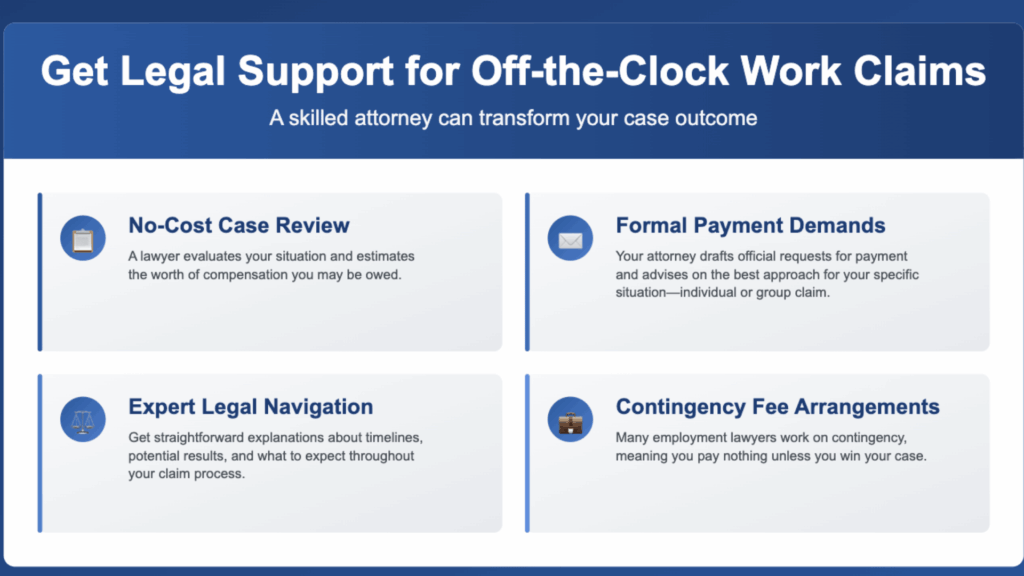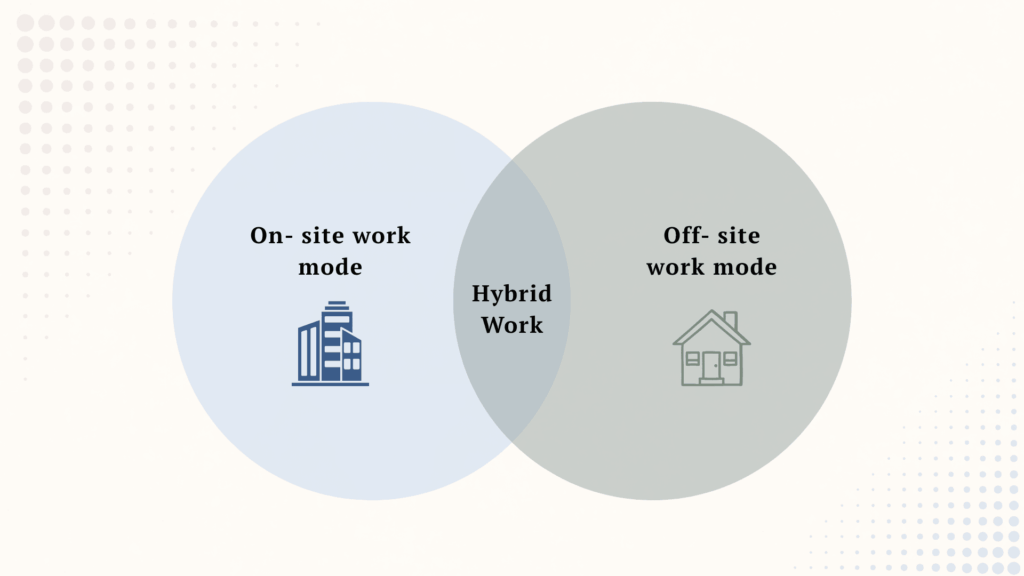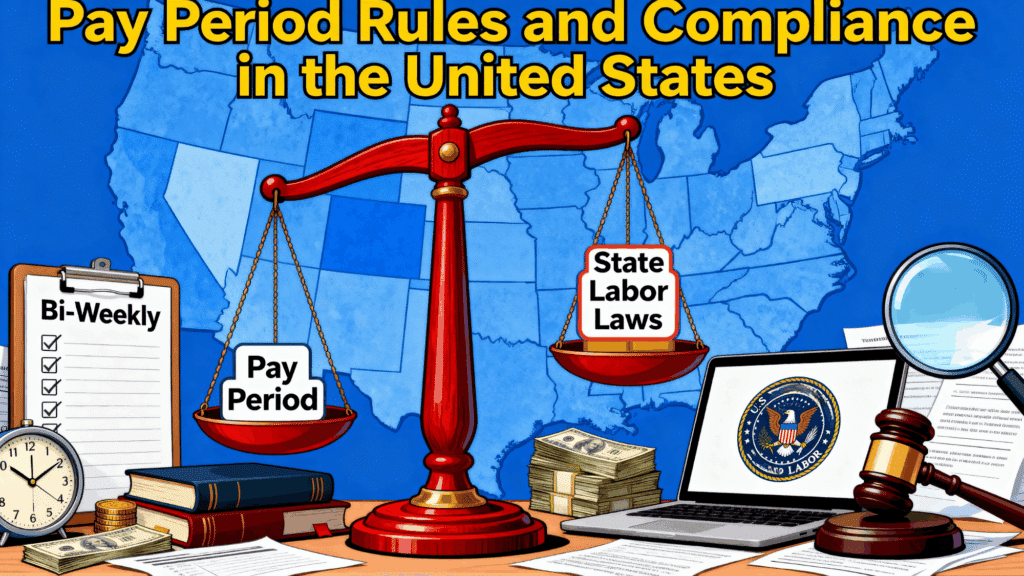Responding to work emails after hours feels like no big deal, but those quick replies add up to unpaid hours each week.
Working off the clock is more common than most people realize, and federal law actually requires payment for all work time.
Many employees miss out on wages simply because they don’t know what legally counts as compensable work.
The Fair Labor Standards Act (FLSA) exists to protect workers from this situation, and it works best when you understand your rights and know how to use them in case you are stuck working off the clock and underpaid.
This blog walks you through the practical steps to get your deserved compensation if violations happen.
Your time matters, and the law backs you up.
What Counts as Working Off the Clock?
Most employees underestimate what legally counts as compensable work time, and that lack of awareness costs them money.
The 15 minutes you spend setting up before your shift officially starts count.
Federal law requires payment for these common activities that many workers perform without compensation:
- Answering work emails or calls outside business hours
- Arriving early to prepare equipment or review daily tasks
- Staying late to finish projects or clean up workspaces
- Attending mandatory meetings during lunch breaks
The main factor is whether your employer requires it or benefits from it, you must be paid for that time.
What to Do if Your Boss Asks You to Work Off the Clock?
Handle the situation directly first before considering formal complaints or legal action.
- State you need to clock in first: Respond professionally by saying you must track the hours before starting any task.
- Send a neutral follow-up message: Confirm the assignment details via email or text to create a paper trail without sounding accusatory.
- Clarify that task duration does not exempt payment: Explain that federal law requires compensation regardless of how quick the work seems.
- Avoid performing the work and then filing complaints: Refusing unpaid tasks upfront strengthens your legal position more than working first.
- Ask for the request in writing: If given verbal instructions, reply asking for an email confirmation of the task and timeframe.
Legal Help for Working Off-the-Clock Claims

The right legal partner can help you turn the tables.
A skilled employment lawyer acts as your expert guide through the complexities of labor laws.
- Free case evaluation: An attorney assesses your claim’s strength and calculates the potential value of your unpaid wages.
- Professional demand letters: Your lawyer sends formal payment requests to your employer and determines whether individual or collective action works best.
- Clear legal guidance: You receive explanations of deadlines, possible outcomes, and next steps in language you can actually understand.
- Contingency fee arrangements: Many employment lawyers work on contingency, meaning you pay nothing unless you win your case.
Working Off the Clock Laws
The federal law applies to most private sector employers and government agencies nationwide.
Thus, almost every employer is bound by the caveats laid down by the government.
Key FLSA Provisions:
| Provision | Requirement |
|---|---|
| Minimum Wage | $7.25 per hour for covered nonexempt employees |
| Overtime Pay | Time and a half regular rate after 40 hours per workweek |
| Recordkeeping | Maintain accurate records of wages and hours for 3 years |
| Child Labor | Age restrictions and hazardous work prohibitions for minors |
| Equal Pay | Same compensation for equal work regardless of gender |
| Break Time | Reasonable break time for nursing mothers |
| Employee Classification | Proper determination of exempt vs. nonexempt status |
Employer Penalties for Off the Clock Violations
Wage and hour violations result in significant financial penalties for employers each year, with the Department of Labor consistently recovering back wages for workers.
| Penalty Type | What It Means |
|---|---|
| Back Wages | Up to 3 years of unpaid wages owed to affected employees |
| Liquidated Damages | An equal amount to back wages owed, effectively doubling what employers pay |
| Civil Penalties | Up to $1,000 per willful violation of wage and hour laws |
| Attorney Fees | Employee legal costs if they win the case |
| Child Labor Fines | Up to $10,000 per violation involving minors |
Protecting Your Rights When Working Over Time
Realizing you are not being paid for all your time can be frustrating, even after trying to handle the situation on your own.
Taking a few clear steps can make a significant difference.
Maintain Records and Report the Violation
- Start a simple log at home.
- Jot down the date, how long it took, and what you did each time you worked without pay.
- File a complaint with the Department of Labor.
The Department of Labor is a government agency designed to handle these exact situations. It is important to know that the law shields you from retaliation.
Your job is protected when you report a wage concern in good faith. Reach out to your state labor office for additional help and local support.
Conclusion
Working off the clock violates federal law and costs you money you have rightfully earned.
Now that you understand which activities require compensation and how to respond when pressured to work unpaid, you can protect yourself from wage theft.
The legal system provides multiple ways to recover lost wages and hold employers accountable for violations.
Start by documenting everything, then decide whether to file a government complaint or consult an attorney based on your specific situation.
Remember that taking action helps not just you but also your coworkers who may face similar treatment.
Federal protections exist because your work has measurable value that deserves fair payment.
Act on this knowledge rather than accepting unpaid work as normal.
Share your experience or questions about unpaid work situations in the comments below.
Frequently Asked Questions
Can I Be Fired for Doing Something Off the Clock?
It depends on job duties and salary level, as many salaried employees are misclassified and may still qualify for overtime pay under federal labor laws.
Can Your Boss Text You Outside of Work Hours?
Yes, employers can legally text employees outside work hours, but workers are generally not required to respond unless the situation is urgent or contractually obligated.
Can I Be Fired for Refusing to Work on My Day Off?
Generally, employees cannot be fired for refusing to work on scheduled days off unless the employment contract requires it or the state follows at-will employment rules.










